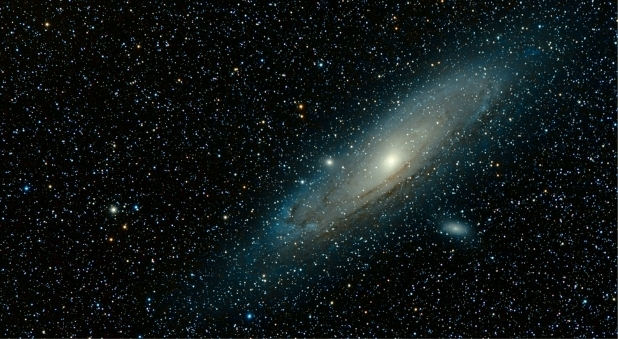We love to obsess over the end of the world. There are countless apocalyptic movies and novels that play to this fascination. Even bizarre doomsday predictions, such as the Mayan calendar, continue to spark interest. Most recently, theoretical physicist Dr. Matt Caplan has offered a new insight into the end of the universe. In contrast to cosmological theories that predict the universe ending in “heat death”, Dr. Caplan hypothesizes that the universe will end when black dwarf stars (a type of burnt-out star) go supernova, one by one, until no more exist. This is predicted to occur 103,2000 years into the future. He concludes that “it will be a bit of a sad, lonely, cold place,” with no one around to witness the end.
There is a stark contrast between Dr. Caplan’s hypothesis and what the Bible says about humanity’s fate in the end times. Dr. Caplan predicts human life will be long gone by the universe’s end, whereas God’s Word declares that humanity will be alive in the final days. Revelation 1:7 tell us: “Look he is coming with the clouds, and “every eye will see him; even those who pierced him”; and all peoples on earth “will mourn because of him.” So shall it be, Amen!” Revelation states there will be multiple eyewitnesses to Jesus’ return.
On the surface, this latest scientific discovery seems to contradict the Bible. But Dr. Peter Orr, a New Testament lecturer at Moore College, believes this new theory regarding the universe can align with God’s Word.
“[Caplan’s hypothesis] is basically what would happen if God did not intervene, and everything continued the way that we see and observe now,” Dr Orr says. “But the Bible says the world is not going to continue the way that it does, because Jesus will come suddenly. That there will be a sudden and direct intervention by God that will end the world.”
More broadly, Dr. Orr reminds us science is not infallible and sometimes gives misinterpreted or incomplete observations of God's world due to insufficient information. “When scientists start to approach the big questions - the origins of the universe, the end of the universe - they’re in the realm of speculation. Scientists, without the kind of revelation we have from God’s word, [are] kind of hamstrung in a sense, because [they] don’t have the full facts in front of [them].”
“When scientists start to approach the big questions - the origins of the universe, the end of the universe - they’re in the realm of speculation.
Science and The Word
It is a common misperception that science and Christianity are incompatible, and that science invalidates the Word of God. For example, the theory of evolution has been seen as inconsistent with the Genesis account of the universe’s origins.
As science continues to learn more about the mysteries of our world, Christians need to know how to respond to these discoveries. Dr. Orr says that science and the Bible need not be read in conflict with one another. “We need to think about what science is. Good science is reading [and] observing God’s world. The Bible is God’s Word. In one sense, God’s world and God’s Word are both revelations of God, so there can’t be any conflict [between the two]. The conflict comes when we misread either God’s world or God’s Word.”
God's world and God's Word are both revelations of God.
The conflict between Galileo and the Roman Catholic church is an example of misreading God’s word. Galileo proposed that the earth revolves around the sun rather than the belief that the earth was the centre of the universe. The “conflict” arose from a misinterpretation of Psalm 19:6 “It rises at one end of the heavens and makes its circuit to the other”, which the church interpreted to mean that the sun and other planets revolved around the Earth. However, as Dr. Orr explains, this verse “is not making a scientific statement, it is a poetic description of what we observe.”
The end of the world, but an eternal hope
When we hear of scientific theories about the end of the world it is easy to become despondent, hearing that we will die out, alone and forgotten by the universe. But this is not our fate. Humanity would indeed have a bleak future if God had not intervened through Jesus, to provide us the promise of salvation and an eternal home awaiting us. While it is true that “the heavens will disappear with a roar; the elements will be destroyed by fire, and the earth and everything done in it will be laid bare” (2 Peter 3:10), this is not the end of the story.
For those who trust in Jesus “are looking forward to a new heaven and a new earth, where righteousness dwells.”(2 Peter 3:13).
As 2 Peter 3 goes on to say, since everything will be destroyed in this way, we should be living holy and godly lives and doing all we can to speed the day of God. Dr Orr says: “There is a day of judgement to come. There is a day of wrath. But Jesus is the one who delivers us from that day of wrath. There's hope for those who put their trust in Jesus, and there's hope while this world is still going well, there is time for people to put their trust in the Lord Jesus.”






















